The event is organized by the Center for Economic Research and Reforms (CERR) with the support of the OTS Secretariat, in line with the initiatives put forward by President of the Republic of Uzbekistan Shavkat Mirziyoyev at the 11th OTS Summit in Bishkek.
The main goal of the conference is to foster sustainable trade and economic partnerships among Turkic states, jointly develop solutions to eliminate trade barriers, promote cooperation, and enhance the competitiveness of regional economies.
In his welcoming remarks, CERR Director Obid Khakimov noted:
“Being in the heart of Central Asia, we have a unique opportunity to unite expertise and forge strong partnerships across the Turkic world that will make our economies more integrated and competitive.”
The conference brings together 16 national analytical centers from six Turkic states: Türkiye, Azerbaijan, Uzbekistan, Kazakhstan, Kyrgyzstan, and Hungary. Among them are leading think tanks such as the Turkic Academy, the Kazakhstan Institute for Strategic Studies (KazISS) under the President of the Republic of Kazakhstan, the Center for Public Policy Research of Kazakhstan, the Institute of World Economics and Politics (IWEP) of Kazakhstan, the Eurasian Research Institute (Kyrgyzstan), the Center for Analysis of Economic Reforms and Communication (Azerbaijan), the Economic Research Institute (Azerbaijan), the Hungarian National Institute for Strategic Initiatives, and the Hungarian Institute of International Affairs.
The event also features the participation of high-level representatives, including Mr. Merey Mukazhan, Deputy Secretary General of the Organization of Turkic States, and Mr. Askhat Kesikbayev, Vice President of the Turkic Academy.
The conference gathers representatives of national think tanks from OTS member states, including OTS Deputy Secretary General Merey Mukazhan and Vice President of the Turkic Academy Askhat Kesikbayev.
The discussions focus on the key challenges faced by Turkic economies amid global instability. Participants emphasized that these risks also present windows of opportunity to strengthen collaboration.
“Today, we are discussing not only risks but also points of growth,” said Obid Khakimov. “The challenges our economies face also open up new prospects. It is precisely the joint efforts of our think tanks that will allow us to build integration based on knowledge, mutual interest, and actionable solutions,” he added.
Key areas of focus include: strengthening transport connectivity, particularly through the development of the Middle Corridor, digitalization of trade, elimination of trade barriers, environmental sustainability and energy sector transformation, development of new financial instruments via the Turkic Investment Fund.
It is worth noting that trade among the member states of the Organization has increased 2.7 times since 2016, reaching $36.7 billion. In 2024, the total foreign trade turnover of the OTS member and observer states exceeded $1.2 trillion, while their combined nominal GDP accounted for 1.91% of the global total, amounting to $2.1 trillion (or $5.6 trillion in purchasing power parity terms).
Across four thematic sessions, participants will explore strategic trade development, digital innovations, infrastructure initiatives, and sustainable development challenges.
The outcomes of the conference are expected to mark the beginning of a new phase of institutional cooperation among think tanks of OTS countries. The presented materials will serve as a basis for shaping new economic strategies and strengthening collaboration within the Turkic world.
Public and Media Relations Sector
Center for Economic Research and Reforms


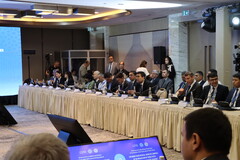
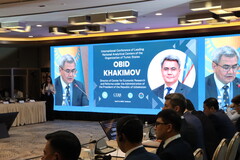
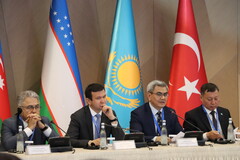
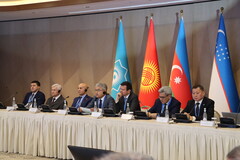
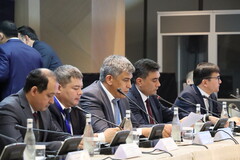
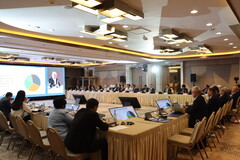



















leave a comment